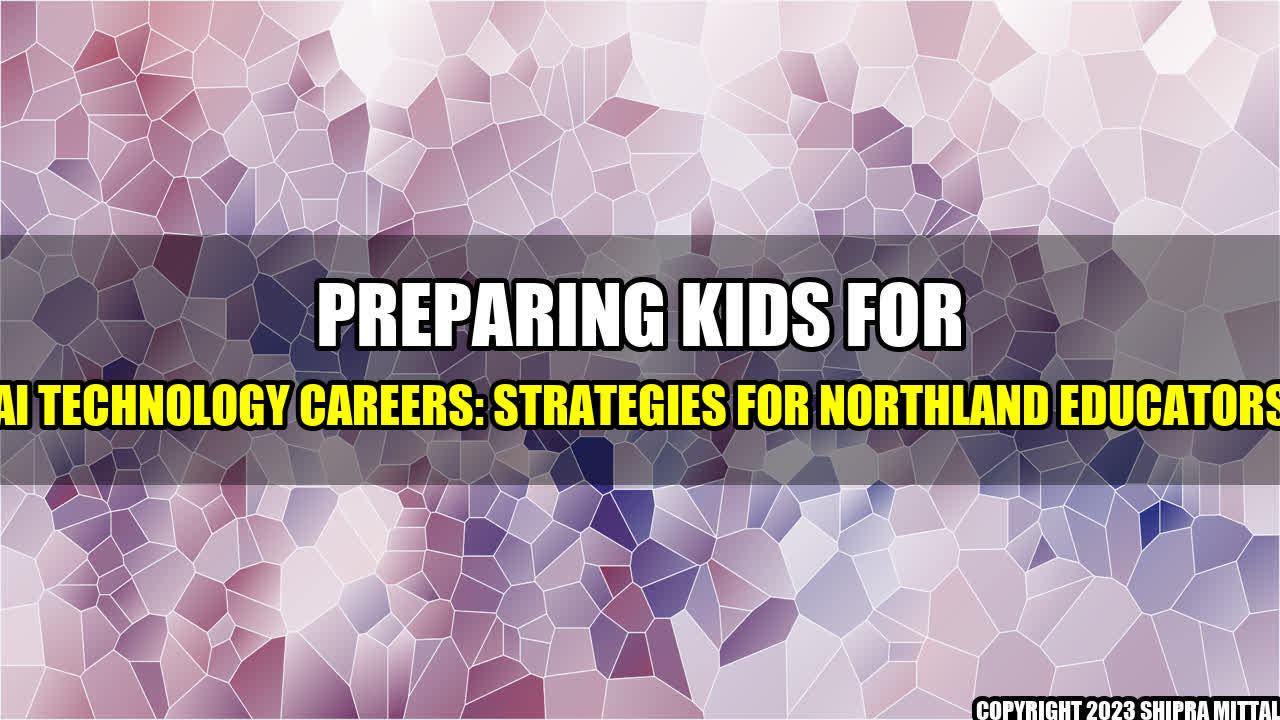Imagine a world where self-driving cars, virtual assistants, and smart home systems are the norm. This world is already here, and artificial intelligence (AI) technology is driving it. But what does this mean for the next generation of children growing up in Northland? How can educators prepare them for careers that don't yet exist?
Real-Life Examples
One of the main challenges facing Northland educators is the constantly-evolving nature of AI technology. But there are some real-life examples that can be used to illustrate the possibilities. Take the use of AI in healthcare, for example. Companies like IBM and Google have developed machine learning algorithms that can detect diseases earlier and more accurately than human doctors. This means that healthcare professionals of the future will need to be skilled in both medicine and AI technology.
Another example comes from the world of finance. Many banks and investment firms are already incorporating AI technology into their operations. This means that future bankers and fund managers will need to be trained in AI algorithms and data analysis.
Strategies for Educators
So, how can Northland educators prepare their students for these new realities? One key strategy is to incorporate AI technology into the curriculum. This can start as early as primary school, with coding classes that teach the basics of Python, R, and other programming languages commonly used in AI. Secondary schools can build on this foundation with classes in data science, machine learning, and AI ethics.
Another strategy is to foster cross-disciplinary learning. As AI technology becomes more integrated into various industries, professionals will need to have a broad range of skills. Educators can help by encouraging students to study both STEM subjects and the humanities. This will help students develop the critical thinking skills and creativity necessary to work with and innovate in AI technology.
Conclusion
Preparing Northland children for the future of AI technology careers may seem daunting, but it is not impossible. By incorporating AI technology into the curriculum and fostering cross-disciplinary learning, educators can help ensure that their students are ready for whatever careers come their way. It is up to Northland educators to take the lead in shaping the future of education in an AI-driven world.
Critical Comments
- Educators will need additional training to teach AI courses effectively and confidently.
- The cost of incorporating AI technology into schools may be prohibitive for some districts.
- There is still a need for human-centric skills such as empathy and communication in the AI industry.

Akash Mittal Tech Article
Share on Twitter Share on LinkedIn